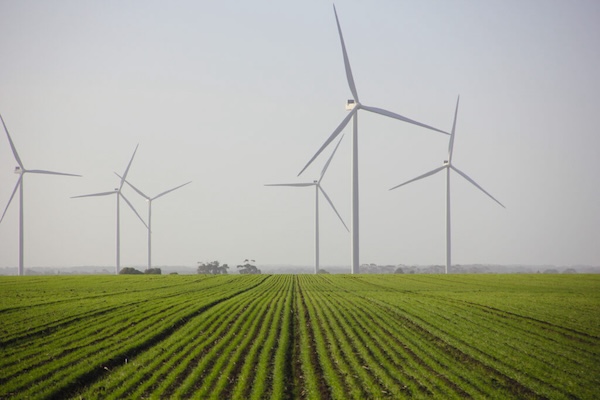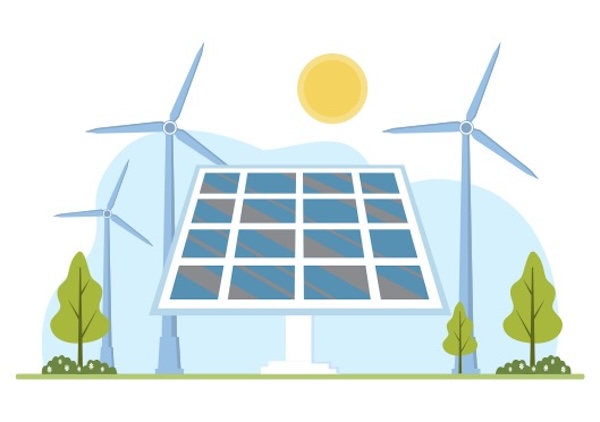Naturgy has clearly engaged as a key agent in the energy transition towards a circular, decarbonized model for the economy, in keeping with the aims of the Paris Agreement

Sustainability is now a cornerstone of Naturgy’s business strategy. This is patently clear in the energy group’s 2025 Sustainability Plan which sets out 6 levers for action, 21 lines of action and 70 goals to which the group has committed in keeping with the United Nations SDGs (Sustainable Development Goals) that feature in the 2030 Agenda for Sustainable Development.
This plan – a reflection of the company’s commitment to sustainable development and ESG (environmental, social and governance) criteria – aims to reduce greenhouse gas emissions by applying a business model that promotes renewable energy and renewable gases, whilst seeking to safeguard supply in a competitive, secure and sustainable manner.
Naturgy has clearly engaged as a key agent in the energy transition towards a circular, decarbonized model for the economy, in keeping with the objectives of the Paris Agreement. This is demonstrated by the measures Naturgy has implemented to achieve a more sustainable future, particularly its determination to be climate neutral by 2050 by reducing scope 1, 2 and 3 emissions completely, and establishing intermediate objectives in keeping with the 1.5oC to 2oC reductions enshrined in the Paris Agreement.
Since 2017 and within the framework of this commitment, the energy group has reduced its direct greenhouse gas emissions by 39%, the CO2 levels in electricity generation by 36%, and water consumption by 39%.
Another objective in the sustainability plan is for some 48% of its power capacity to be produced by renewable sources by 2025. This has prompted considerable efforts in this area, enabling the company’s power capacity to be more than 40% emission-free overall and its emissions to fall by 10% to 217 tCO2/GWh in the first half of 2024.
As for the environment, nature conservation is a priority for Naturgy along the road to sustainability. Several schemes designed to prevent, reduce and offset the company’s impact reflect its commitment to restoring nature and biodiversity, ensuring no net loss of biodiversity, and also enhancing the value of natural settings. In fact, in 2023 alone, the company carried out 353 biodiversity initiatives, 22% of which were intended to conserve protected species, habitats or spaces.
The company is also making inroads in the social sphere, specifically as regards gender parity which it aims to achieve by 2030. In this respect, Naturgy is working towards more than 40% of its executive and management positions in Spain being occupied by women by 2025.
Acknowledgement within the industry
All these actions implemented in social, environmental and good governance spheres have cumulated in recognition by the industry, particularly the gold medal awarded by EcoVadis which sets Naturgy amongst the top 5% of the companies in its ranking.
Naturgy has also been acknowledged recently to be one of the most sustainable utility companies, enabling it to consolidate its No. 1 position in the FTSE4Good index, which it has featured in since 2001, with full marks in biodiversity, working conditions, health and safety, risk management, corporate governance and fiscal transparency. This index is part of the prestigious FTSE Global Equity Index which analyzes more than 2,000 companies and more than 300 social, environmental and corporate governance indicators.
The prestigious Carbon Disclosure Project (CDP) index also gives Naturgy a high score, ranking it as a leading company in the implementation of measures to combat climate change, and consolidating its presence in this ranking for the thirteenth consecutive year.
Naturgy’s Director of Environment and Social Responsibility, Nuria Rodríguez, says, “This recognition confirms that the actions our company is carrying out makes us a key actor in the energy transition. The measures we are taking to combat climate change and its impact have enabled us to reduce our total carbon footprint in 2023 by 30% compared to 2017.”
All these acknowledgements of Naturgy’s responsibility and engagement with sustainability were undoubtedly possible thanks to hard work centered on implementing good practices and a business model committed to the sustainable development of society, which led, in turn, to the creation of the Sustainability Committee in their board of directors in 2020. This aim of this committee is to raise awareness of the company’s commitment to environmental, social and governance criteria at the most senior level, making it one of the first Spanish companies to have a body to monitor the fulfilment of its sustainability plan.
Renewable gases, crucial for decarbonization
With a view to becoming climate neutral, Naturgy has made significant progress in creating a more sustainable energy mix, which currently consists of 6.5 GW of operational power. Looking ahead, the company’s strategy is focused on the increase of renewable energies, such as wind and solar, in addition to innovative renewable gas projects, such as biomethane and green hydrogen.
Knowing that the development of renewable gases is essential for decarbonizing the energy sector, the company is implementing a variety of schemes in Spain to promote the production and distribution of biomethane in the short term, and also the generation of hydrogen as an energy vector, which will significantly impact its energy mix in the medium term.
Biomethane: the most sustainable decarbonization alternative
Naturgy is the leader in injecting biomethane into Spain’s gas distribution network, thus contributing to boosting its development. This technology is a source of clean energy that can be carried by the existing gas infrastructure, facilitating its use in homes, industries and transport.
This gas produced from organic waste is essential for achieving three objectives: complying with decarbonization goals, promoting greater energy independence and reducing waste management issues.
Biomethane is now a mature, affordable and storable technology that has proven to be the most sustainable decarbonization alternative for the environment, the economy and society because it is emission neutral and promotes the circular economy and waste reduction.

































